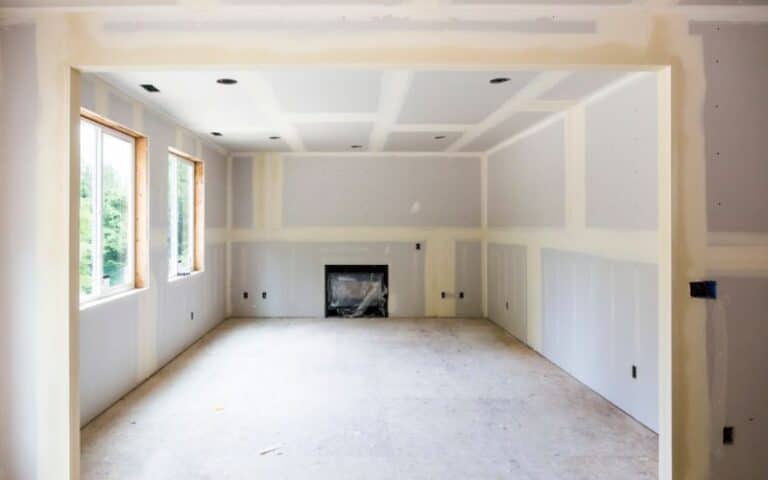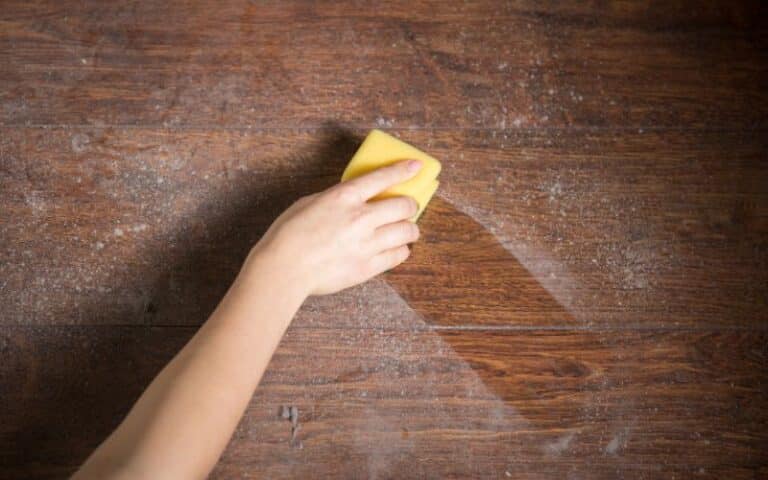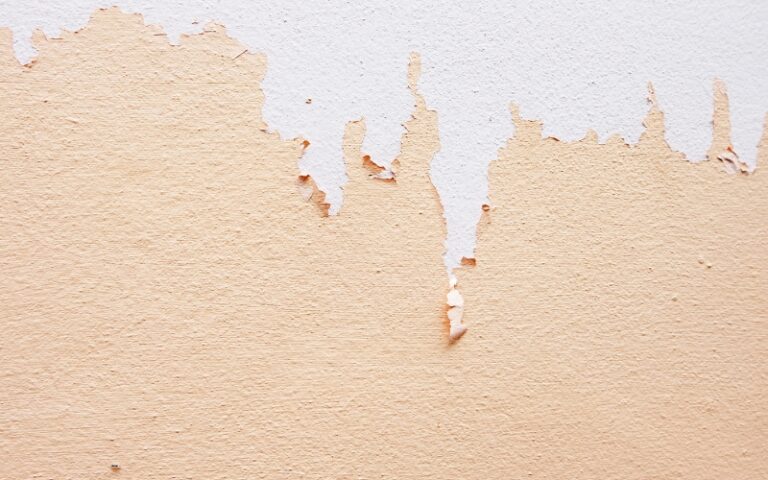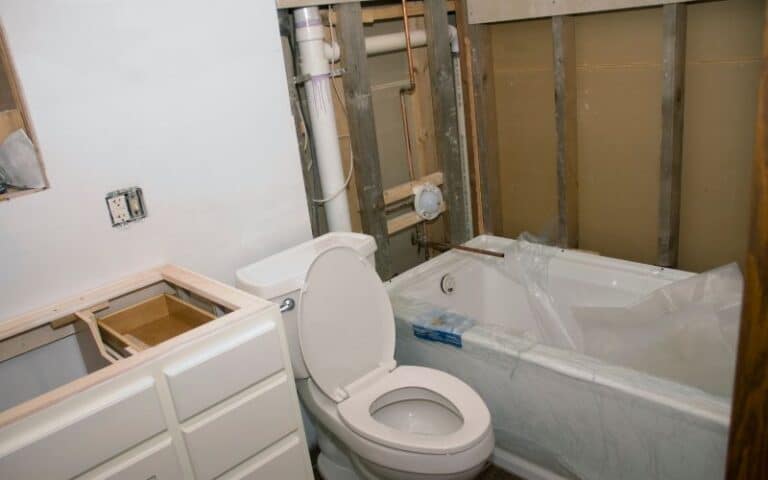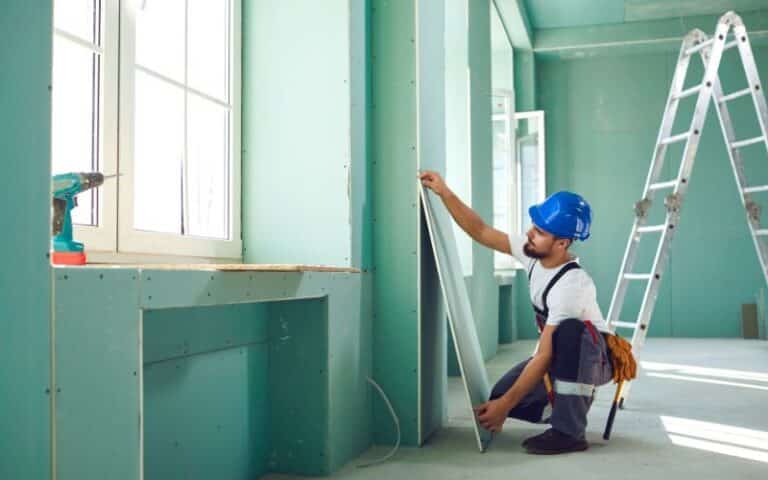Drywalls differ from regular walls, and so do the screws used.
Since the materials used for drywall installation differ from conventional concrete walls, you may feel relaxed about some typical screw problems like rust.
After all, some drywall screws come with coatings to prevent rust, so your drywalls should be safe.
But what if they’re not, and some precise spots begin to discolor? What may be behind it? Does it mean your drywall screws are beginning to rust?
Although most drywall screws, especially black ones, are coated to prevent rust, it doesn’t offer a permanent solution, as drywall screws still rust. It begins as discoloration around the screws and eventually spreads to other areas of the drywall. It usually happens due to heat or moisture exposure regardless of the installation location, indoors or outdoors.
Rust is a menace in every home, especially on white drywalls where the color discoloration is especially prominent.
If you’ve experienced this in your home or don’t wish to, we’ll guide you on how to eliminate the rust and prevent them from happening.
Ready for a Drywall Quiz?
Are Drywall Screws Rust-resistant?
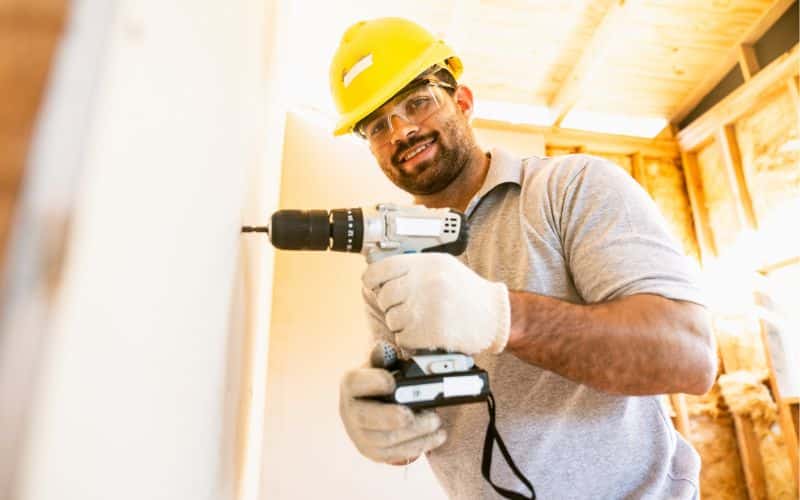
Some drywall screws are rust-resistant but don’t prevent rusting altogether, as some factors are beyond control.
For example, zinc-coated drywall screws and black phosphate drywall screws are both rust-resistant and do an excellent job of preventing corrosion.
But they have a limit, so often; you can expect to notice some discoloration around the drywall screw head due to rust.
The zinc coating and black phosphate finish in these drywall screws protect them from corrosion and rust.
And this helps to keep your drywall looking beautiful for a long time with no stains.
However, if you’re planning on a new drywall installation, you’ll want to know which drywall screw offers the best protection from rust.
And below, we’ve outlined some notable differences between zinc drywall and phosphate in a tabular form.
| Zinc coating | Black Phosphate Coating |
|---|---|
| Zinc has corrosive properties serving as a barrier from the screws’ rust rate. | Phosphate coating in drywall screws is an excellent paint base. |
| Zinc coating on drywall screws protects them from moisture, a widespread cause of rust. | Phosphate offers an impressive corrosion & rust resistance than other screw types except for zinc. |
| Zinc coating offers a bright finish in screws and is easy to apply. | Phosphate-coated drywall screws are more affordable than those with zinc coating. |
| Zinc coating in drywall screws is an inexpensive plating method that offers the best results. | It provides an excellent grip feature making it easy to screw into drywalls. |
| It isn’t the best option for use on surfaces requiring paint. | It is more visually appealing for use on drywalls that don’t require paint over it. |
Do Drywall Screw Rust after a While?
Zinc and black phosphate coating on drywall screws are an excellent way to prevent rust, but under the right circumstances, they also rust.
But the good news is that this will take some time. In the case of zinc coating, it works as an electropositive metal (sacrificial anode).
And this means it places itself before the main screw such that during corrosion, the plating first corrodes before the metal.
Hence, when your drywall screws are exposed to anything that induces rusting, it is less likely they’ll suffer from corrosion.
It is also the same with phosphate coatings. They’re chemical treatments that help metal screws withstand corrosion and rust using a thin film of iron, zinc, and other products.
In conclusion, remember that these protective coats help to decrease corrosion rate, thus prolonging the drywall screws life over regular screws.
And it’s best to stick to using drywall screws for drywall installations. But if you use other screws for the drywall installation, use recommended ones.
How Long Do Drywall Screws Last?
Generally, regular drywall screws don’t last long and are vulnerable to corrosion & rust-causing factors.
Using such drywall screws, you can expect to notice rust, discoloration, and other problems.
And for coated screws, regardless of how powerful these zinc-coated drywall screws are, they don’t last forever.
But they last for a significant time, usually around ten years, before displaying any indication of damage.
The same goes for black phosphate drywall screws. Since they’re not as strong as zinc plating, they could last for half a decade or a bit above it but not as long as ten years.
But one prominent factor influencing their longevity is the environment or location factor. Naturally, you can’t expect indoor drywalls to last as long as those outside using drywall screws.
Experts don’t recommend using drywall screws outdoors; even those with phosphate coats will eventually rust sooner.
Using galvanized screws like zinc-coated and steel for outdoor installations is best.
Drywall screws, when outside, are vulnerable to moisture and water, two well-known rust-causing factors.
It causes rust and, eventually, the screws to weaken, endangering the drywall installed. Also, humid air can cause corrosion over time.
So if you install drywall screws outdoors, their lifespan drastically reduces.
And in this case, it’s more likely to notice the screw and screw holes change color due to excessive exposure to sunlight or rain.
In contrast, indoor use of drywall screws is safer. But this doesn’t guarantee the drywall screws will last longer, as some factors could also put the screws at risk of rusting inside your house.
Moreover, some house owners have noticed a darkening in screw holes inside their homes. While this may be surprising, it is possible.
Why Drywall Screw Holes Could Darken Indoors?
It’s more expected for drywall screws to rust outdoors, but one might be hesitant to believe it could also happen indoors.
But that is possible, and here are some vital points to note.
- Understand that sunlight can also penetrate your home due to open windows depending on the drywall screws’ location. And when this repeatedly occurs, they could darken.
- Those who use heaters in their homes also can experience this problem.
- The excessive what constantly turns the screw to dark brown, and this heat can also move to the drywall, causing discoloration.
Note: This is popular in drywall screws with protective coats bathed in oil for extra protection, like those coated in black oxide.
- The drywall screw could also darken in a highly moist environment. Hence, it is vital to monitor your home’s humidity level.
- Lastly, if one frequently smokes in their home or burns incense, it increases the likelihood of experiencing screw darkening.
What are the Risks of Using Deck Screws for Drywall Installation?
Using deck screws on drywall can pose several risks. Unlike traditional drywall screws, deck screws are typically larger and have a coarser thread, which can cause the drywall to crack or split. Moreover, deck screws are not designed to securely hold drywall in place, potentially resulting in loose or sagging panels. It is crucial to use the appropriate screws for drywall installation to ensure a strong and lasting outcome.
How Can You Prevent Drywall Screws from Rusting?
Every homeowner or individual will surely want to avoid rusting on their drywall screws.
Instead of waiting for it to happen, it’s best to prevent it from happening. And we’ll explain some effective methods of doing this.
#1. Galvanize
Since you can’t galvanize the drywall screws, buying already-galvanized ones, such as zinc-coated screws, is best because it rusts slower.
But know that under extreme circumstances, the galvanized drywall screw will rust, but it does provide an extra layer of efficient protection.
#2. Shield From Moisture
Rust occurs due to chemical compounds and moisture reactions. So in the presence of constant moisture from humid air or a wet room, the drywall screws will rust.
Even salt also decreases the screws’ resistance to rust, especially in places like swimming pools or bathrooms, so it’s best to use protective sealants.
#3. Painting Over Screws
Painting these drywall screws is another effective way to prevent rust. It is also an easy method since the majority paint their drywalls.
However, while simple to do, it isn’t a foolproof plan as it last temporarily; hence treat it frequently and inspect the screws yearly to ensure it’s still okay.
And if you notice any deflect, do quick touch-ups on them.
#4. Store Properly and Apply Dry Coatings
If you haven’t used the drywall screws, storing them properly in areas free from direct sunlight and moisture is best.
And also, use suitable materials and coats on these screws if you install them in wet rooms. These dry coatings, like black phosphate, help to slow rust rates.
What Is the Best Way to Store Drywall Screws to Prevent Rusting?
The most effective way to store drywall screws to prevent rusting is to protect them from moisture, humid air, and constant exposure to direct sunlight and excessive heat.
These factors reduce screws’ rust resistance, and avoiding them to your best capacity will prolong your drywall screw’s longevity.
You can only do so much to protect your screws. Besides, rusts are naturally occurring, so when they happen later, you can eliminate them and reapply protective coats or get new ones.


